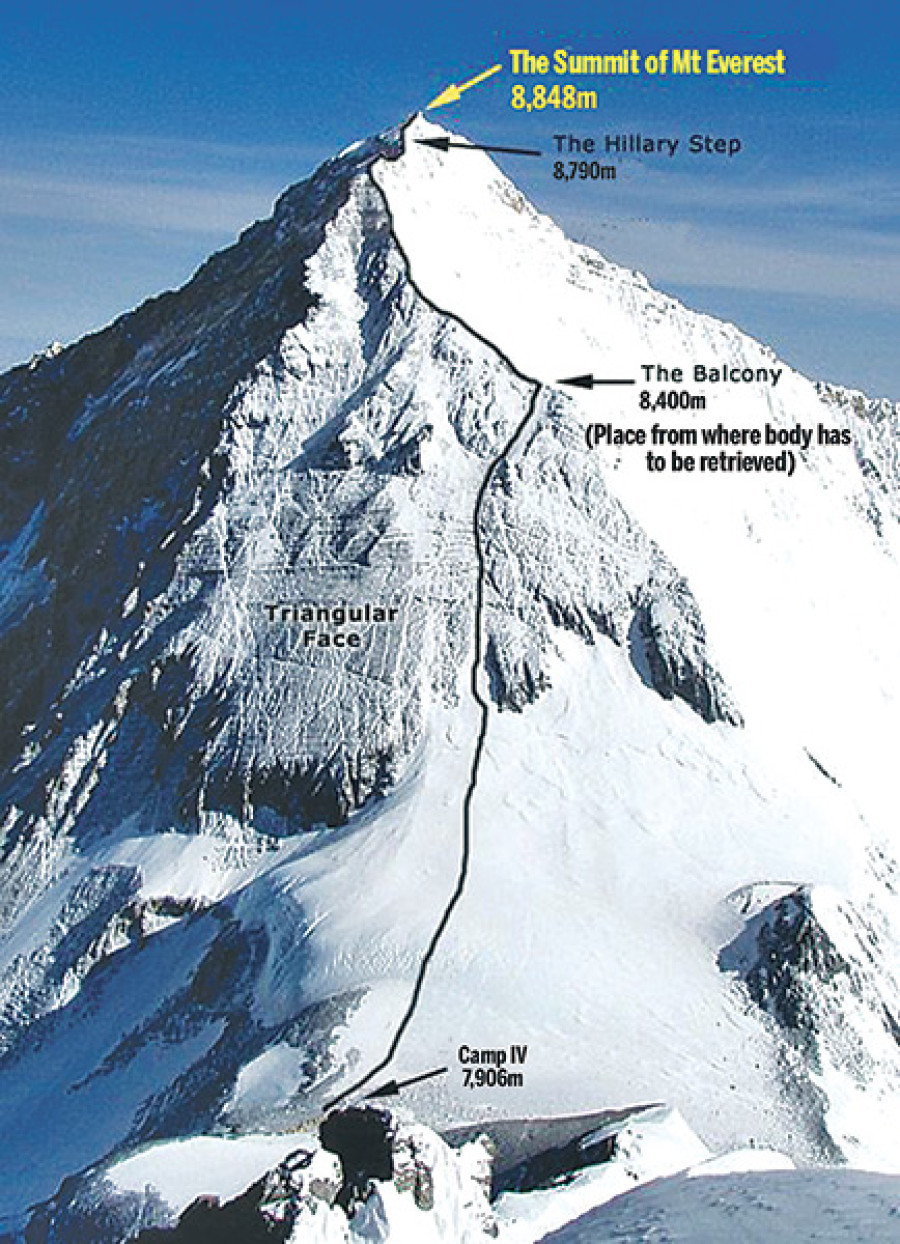Money
High-altitude experts to retrieve body from Everest
A team of high-altitude climbing experts will embark on a daring mission to retrieve the body of an Indian climber from Everest on Thursday morning.
Sangam Prasain
A team of high-altitude climbing experts will embark on a daring mission to retrieve the body of an Indian climber from Everest on Thursday morning.
They will be risking their lives as they try to bring back the body of Ravi Kumar from a 200-metre-deep crevasse near the summit of the world’s highest mountain.
Kumar, 27, went missing from the so-called balcony at 8,400 metres on Everest on Saturday. His body was discovered on Monday morning after 36 hours of intense search.
The 10-member team of experts will leave the Base Camp on Thursday . “We have hired experts from Seven Summit Treks which has conducted several successful search and rescue operations,” said Chowang Sherpa, managing director of Arun Treks and Expedition, the agency handling Kumar’s expedition.
If this mission is executed, it will be the most complex rescue operation on Everest by far. The operation was launched following immense pressure from the Indian government.
According to India’s state-owned Doordarshan News, the mission is being carried out as per the instructions of Indian External Affairs Minister Sushma Swaraj. It stated that the Indian government was providing all necessary support for the operation.
“A team of 15 high-altitude expert climbers have been deputed to carry out one of the most difficult and challenging missions,” the TV channel said.
The team is expected to reach Camp IV at 7,850 metres after two days. “We expect to complete the mission in a week if the weather is good,” said Chowang. The Indian government has instructed the agency to keep it updated of every activity carried out during the mission, he said.
The bereaved family wants the body at any cost. Due to the risks involved in spending so much time at high altitudes, many expeditions choose not to bring down the bodies of their members who die on Everest.
On Monday, a discussion lasting more than two hours was held at the Indian Embassy whether to retrieve the body or not.
Officials of the Department of Tourism said that the agency handling Kumar’s expedition cannot run away from its responsibility. “It’s their duty to take climbers to the summit and bring them back successfully,” said a high-level official who did not wish to be named. “If the bereaved family wants the body, they have to bring it down from the peak at any cost.”
The mission is expected to cost $60,000-$70,000. At least 10 high-altitude climbing guides will be needed, and each rescuer will be paid a fee of $1,000 daily.
Such rescue operations require a large number of oxygen cylinders, at least 40 cylinders. Each cylinder costs $500. Besides, helicopters need to be flown up to Camp III at 7,200 metres to bring down the body.
Going down into a crevasse 200 metres deep at an altitude of 8,400 metres to retrieve the body will be the most complex rescue ever executed on Everest, according to Ang Tshering Sherpa, president of the Nepal Mountaineering Association (NMA).
Kumar had reached the summit with his guide at 1:28pm on Saturday. The Indian climber collapsed during the descent at 8pm due to low energy and oxygen levels.
He had forced his guide to push for the summit even though it was not a good time, according to the expedition organiser. The guide left Kumar on the balcony with auxiliary oxygen as he couldn’t walk any further.
The guide descended to Camp IV to send back a rescue team as he was suffering from frostbite and snow blindness. Three high-altitude guides reached the spot, but they couldn’t find the Indian climber.




 9.89°C Kathmandu
9.89°C Kathmandu















